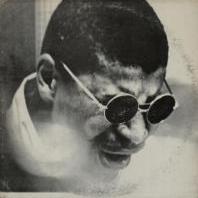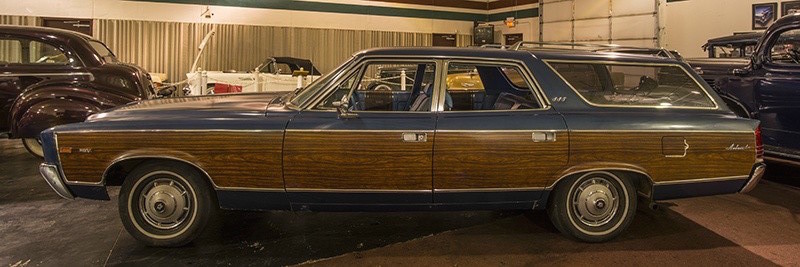-
Posts
5,203 -
Joined
-
Last visited
Content Type
Profiles
Forums
Events
Blogs
Everything posted by Late
-
Has anything from the Horo label ever been reissued on compact disc? If not, I wonder why.
-
Oregon is a vote-by-mail state, so I did the same thing two weeks ago. On top of that, to truly get a feeling for the election process, I took a five-day minimum wage job at the County Elections Office, where I've been opening and inspecting ballots eight to nine hours a day (in addition to my regular job). It's been an educational, if sometimes grueling, experience. People work in teams of two, and must be from opposite parties. We inspect each ballot by hand (or rather eye), and process ballots either to be read by machine, or, if there are write-ins, manually. The entire staff has been trained to function in a politically neutral zone, and, I must say, everyone I've worked with — which has been around 100 people — has been exceptionally congenial. There's a lot at stake, but this has somehow seemed to bring people together. I want to have faith in the democratic process, and being in the trenches of the process itself has shown me that, at least in this relatively small voting district, it can work. I have to trust that the same can hold true for larger, more hotly contested, districts.
-
Doesn't look like it. Here are the two covers:
-
I'm guessing that the easiest way to tell the difference is price! But, as for clues, I just don't know; I actually have yet to purchase any vinyl reissues ... though I want to!
-
Welcome back, Garth. Now we can bump threads up that discuss musicians with weird names like Phil Sunkel, Conrad Gozzo, Milt Bernhart, Jay Core, etc. Actually, Bernhart used to post a lot on a West Coast bulletin board that was sponsored by Jim Harrod. Some great reading there.
-
Both Jazz Lab sessions are now on this Lonehill reissue: And there's also this one: Anyone familiar with this latter recording?
-
Here are the details: Wayne Shorter Quintet Wayne Shorter: tenor saxophone Barbara Burton: vibes, bells, percussion McCoy Tyner: piano Miroslav Vitous: bass Alphonse Mouzon: drums, percussion A&R Studios, NYC, October 13, 1970 rejected Blue Note tk.3 Pt. 1: The Creation tk.4 Pt. 2: B. Because tk.5 Pt. 3: Cee tk.7 Pt. 4: Dee tk.8 Pt. 5: Effe
-
There is an unissued session with Shorter and Tyner together on Blue Note, but I don't believe it has Coltrane on it. Can't remember what the line-up is, but I do remember some time ago that Cuscuna, via reports through board members, was perplexed that more people weren't clamoring for this one.
-
Wonder who has? ...and how it stacks up to this one? My thoughts too. I'm tempted to "upgrade." Argh!
-
Nice session. One I haven't spun in a while. Halloween seems a good time to get it out!
-
Isn't that Sulieman playing with Dolphy at the end of the documentary Last Date?
-
Idrees Sulieman Ira Sullivan Two trumpet players that don't get discussed too much, and I thought maybe we could change that. Has anyone here heard either musician in-person? I don't know much biographical information on either, other than Sullivan is one of those ambidextrous musicians who is equally adept on the tenor. Favorite appearances on record?
-
This one is probably the best bet to start with. Blues in Trinity is a solid hardbop date with Tubby Hayes in typical fine form. Soundin' Off, in my opinion, is the one to have, however. Others will tout the OJC as well. It's a fine session.
-
Nah. That's my fault. Happy Birthday Guy. Thanks for all your thoughtful posts.
-
Have any of you been picking up the Saturn vinyl reissues, or the recent reissues by Art Yard, out of the UK? They're usually around $12.99 (the Saturns) or $19.99 (the Art Yards). I was wondering in general about sound quality and packaging. I usually don't shop for vinyl these days, but have been tempted by some of the Saturns that are vinyl only (e.g. My Brother the Wind, Vol. 1).
-
I like it a lot. Somewhat "in the pocket" for Ra, but not without his musical signature or nuance. It also was very well-recorded, which adds to the listening pleasure. Check out "There Are Other Worlds They Have Not Told You Of" on headphones. A trip.
-
Dig.
-
Addey did the original transfers to compact disc for Elvin Jones' Live at the Lighthouse, both volumes 1 and 2, reissued in 1990 (which contains the "Happy Birthday" song and some announcements that the Mosaic doesn't). The Mosaic contains Ron McMaster's work. Addey also did the remaster work for Cecil Taylor's Jazz Advance, not originallly on Blue Note. The JRVG of Jazz Advance, to my ears, sounds even better, however.
-

hard-bop/modal piano-trio albums that kick ass!!!!
Late replied to Rooster_Ties's topic in Recommendations
Far more contemplative than grooving, this one is interesting nevertheless in a Bill-Evans-meets-Andrew-Hill fashion: -
Hiroshi just found AMCY 1171 for me! Woo-hoo!
-
All six of Sanders' domestic reissues on Impulse! are currently $11.99 here. All U.S. Verve/Impulse titles are currently 25% off list price at Tower. Not a superb deal, but not bad, either.
-
Listen to him on Lacy's Vespers, and all will be forgiven. Some ecstatic soloing from Ford there, albeit 11 years ago now.
-

Swap my RVG for your old, McMaster CD's
Late replied to Trader's topic in Offering and Looking For...
Agreed on all counts. Rudy's remastering work of Doug Hawkins' original Blue Note recordings, usually done at WOR Studios, are my favorite "RVG" discs. I just wish the Elmo Hope recordings had come out domestically in that same batch. Rudy's latest batch, though ... Ugh. Blue Spirits = Blue Note + Gangsta Rap Bass. But, hey, don't forget Larry Walsh's stab at remastering for Blue Note! Some of the very worst (e.g. the first edition of Basra) in my opinion. At least there's Toshiba's new 6000 series. Whew! -
Available again (on vinyl)!
_forumlogo.png.a607ef20a6e0c299ab2aa6443aa1f32e.png)


